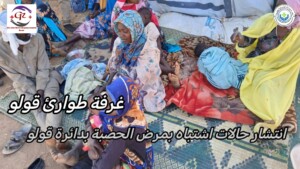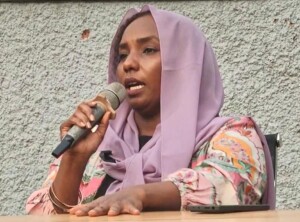A sit-in in Abu Hamad, River Nile state, to demand the expulsion of mining companies from the area of El Fida, continued yesterday for the sixth day.
Activist and member of the sit-in committee, Osman Ali Jibril, told the Voice of the States programme on Radio Dabanga on Sunday that the sit-in will continue until all mining companies working in the area have stopped their work.
The activists demanded the government of River Nile state and police and intelligence departments in El Fida to stop all mining activities. He said they are only two to three kilometres away from populated areas, which violates national and international laws.
Jibril said they reported cases of kidney failure, cancer, epilepsy, and miscarriages, to the authorities of El Manaseer, but they are yet to respond.
The materials used in traditional gold mining, such as cyanide, has also killed a number of animals in the area. The pollution caused by the use of cyanide and mercury in gold mining “constitutes the largest and most dangerous threat to the country’s environment”, a Sudanese environment protection expert told Radio Dabanga in 2017.
In the past, people living in villages adjacent to El Fida have burned down offices of gold mining companies in El Shareek due to the failure to respond to their demands, Jibril reported.
He called on the authorities to respond to their demands so that the people enjoy a non-contaminated environment.
He appealed to all government agencies and international organisations to keep gold mining companies away from the area of El Fida.
According to France 24, Sudan was the second-largest producer of gold in Africa and the ninth in the world in 2018. The production however is driven by unregulated, artisanal (individual subsistence) mining: More than 1.5 million men who put their lives at risk to dig for and extract the precious metal. And much to their dismay, the government in Khartoum is pushing to attract foreign investors and introduce more industrialised methods.
 Mansuri women washing Nile gold, from Merowe Dam relocation area (File photo: International Rivers)
Mansuri women washing Nile gold, from Merowe Dam relocation area (File photo: International Rivers)











 and then
and then